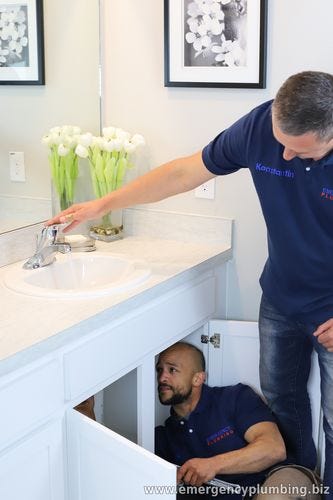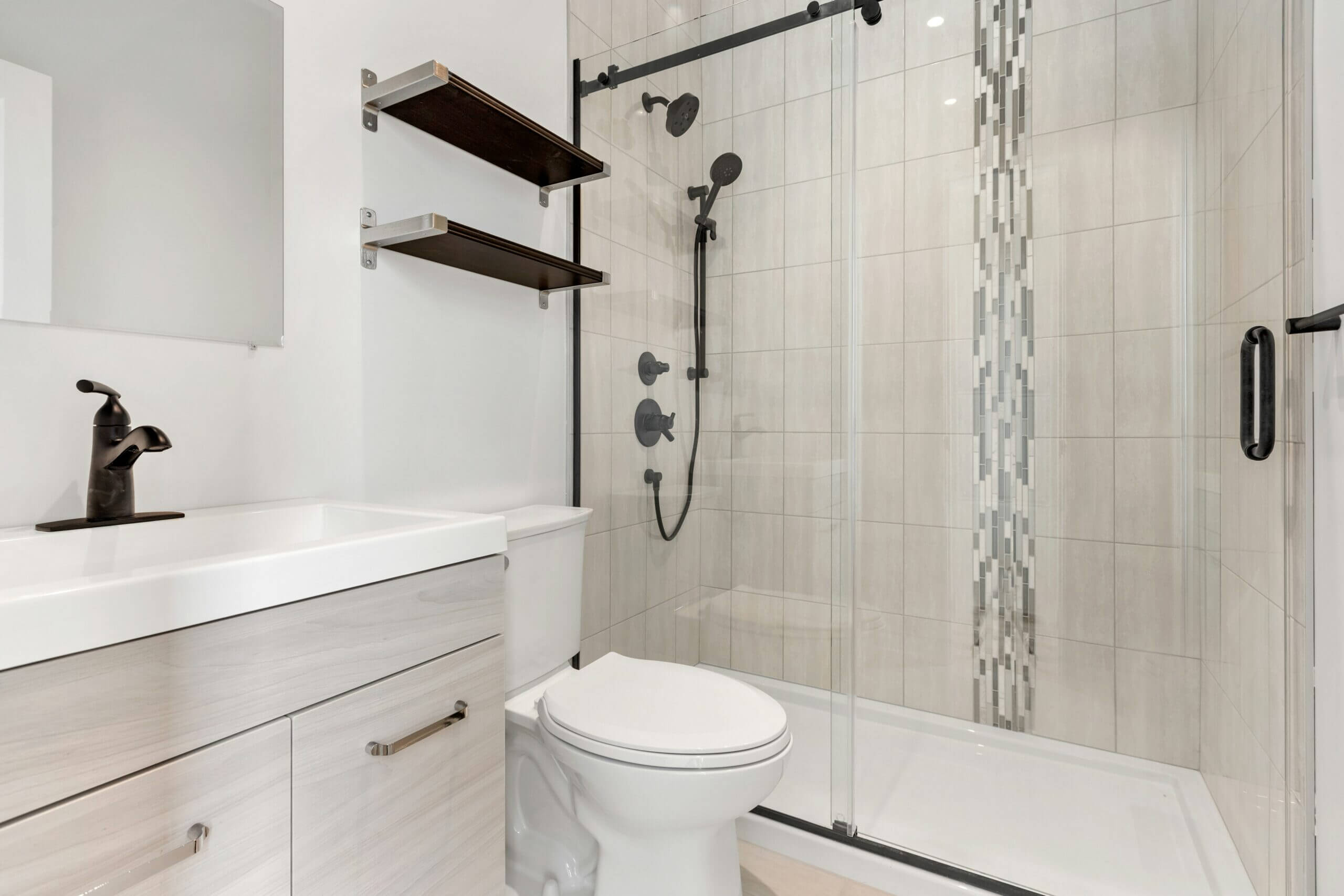Handling Your New Home's Bathroom Plumbing: Key Guidelines
Handling Your New Home's Bathroom Plumbing: Key Guidelines
Blog Article
What're your ideas on Smart Plumbing Tips for New Homeowners?

For brand-new homeowners, understanding and keeping shower room plumbing can conserve both time and money by preventing pricey problems down the line. Here are some essential washroom pipes ideas to assist you keep everything running efficiently.
Plan For Cold Weather
Protect your pipelines from freezing throughout winter by insulating pipes in unheated locations like basements, attic rooms, and garages. Throughout extreme cool, allow cold water drip from faucets offered by subjected pipelines to assist protect against freezing.
Set Up Regular Maintenance
Think about scheduling annual inspections with an accredited plumber. They can detect issues that you might miss out on, such as hidden leaks or damage on pipes and fixtures. Normal upkeep assists extend the life of your plumbing system and can prevent emergency situations.
Familiarize Yourself with the Key Shut-Off Valve
Knowing where the main water shut-off shutoff lies in your home is vital. This allows you to rapidly switch off the water system in case of significant leakages or during plumbing emergency situations, protecting against substantial water damages.
Consistently Inspect for Leaks
Little leaks can bring about big issues. Consistently check under sinks, around bathrooms, and near plumbing components for any kind of indicators of leaks. Try to find wetness, tiny drips, or corrosion. Capturing and repairing leaks early can avoid extra significant damage and save water.
Maintain Your Water Heater
Ensure your water heater is readied to an ideal temperature level (typically around 120 degrees Fahrenheit) to prevent scalding and decrease power use. Flush the storage tank every year to get rid of debris accumulation, which can minimize the performance and life-span of your heater.
Update Your Components
If your home has older components, take into consideration updating to a lot more reliable versions. Modern commodes, showerheads, and taps are created to utilize less water while offering great pressure, which can considerably decrease your water bill and environmental impact.
Beware with Do It Yourself Plumbing Fixes
While it's appealing to manage all home repair work on your own, be cautious with pipes. Some problems may need professional knowledge, especially if they involve major water lines or drain repair work. Employing a professional can sometimes be extra economical than DIY, especially if it protects against additional damages.
Don't Disregard Slow Drains
If your sink or bathtub is draining pipes gradually, it's typically an indicator of an obstruction creating. Resolving this early can avoid a total blockage. Utilize a bettor or a plumbing professional's snake to remove particles. Prevent making use of chemical drain cleansers as they can damage your pipelines over time.
Know What Not to Flush
Bathrooms are not waste disposal unit. Stay clear of purging anything besides toilet tissue and human waste. Things like wipes, womanly health items, and cotton swabs must be thrown away in the garbage to prevent clogs and sewage system backups.
Set Up Strainers in Drains
Place strainers in your sink and tub drains to catch hair and other debris prior to they enter your plumbing system. Cleaning the filters consistently will help protect against accumulation and maintain water flowing freely.
Final thought
Comprehending and keeping your home's shower room plumbing can protect against numerous usual problems. By adhering to these important pointers, you can ensure your bathroom stays practical and reliable, conserving you time and money in the long run.
5 Plumbing Tips for First-Time Homeowners
Know How to Shut Off the Water
In most homes, the water can be shut off at two places: at the appliance or fixture itself, and for the whole house. For instance, look under your sink or behind the toilet. See those little knobs that connect with the pipes? Those are the shut off valves for those fixtures. Simply turn them until the water is off. The main shut off valve (which controls water throughout your entire home) will be outside, where the water feeds into the structure. You might need a dedicated tool, such as a water shut-off key, to shut off the water at the main.
Build an Emergency Plumbing Kit
Everyone knows how important it is to have a high-quality plunger around the house. But there are other things that can help you out when issues arise with the pipes. Building an emergency plumbing kit to solve issues on your own is part of any list of basic plumbing tips. Consider adding these things to create a basic plumbing kit:
Adjustable wrench Tongue-and-groove pliers Screwdrivers Plumber’s tape Pipe sealant Duct tape Set of hex keys Clip light for working under cabinets Auger and hand snake Do a Little Research
Many small leaks can be handled by replacing a small part of the piping system, tightening part of a faucet, or even changing out an aerator. Take the time to browse how-to articles for common plumbing problems, such as a running toilet or slow-draining sink. You might be surprised to find how easy it can be to do simple things yourself, like replace a valve in the back of the toilet.
Keep it Simple With No Chemicals
If you have a clog, you might be tempted by the promises of liquid drain cleaner. While this might work at first, it actually causes more damage deep in the pipes, eventually creating even more problems down the road.
Instead, try using baking soda and vinegar to create a strong fizzing effect that can help break up clogs and clear gunk from drains. Follow it with boiling water to clean the pipes even more thoroughly.
Take Care of Your Garbage Disposal
Be cautious about what you put down the disposal. Avoid pouring in fats, oils, and grease, as these are a surefire way to get a clog. Beware of certain foods too, such as celery or bones, as they can lodge in the works. Always run the disposal with water flowing.
https://modernize.com/homeowner-resources/other/10-plumbing-tips-for-first-time-homeowners

Call Today Report this page